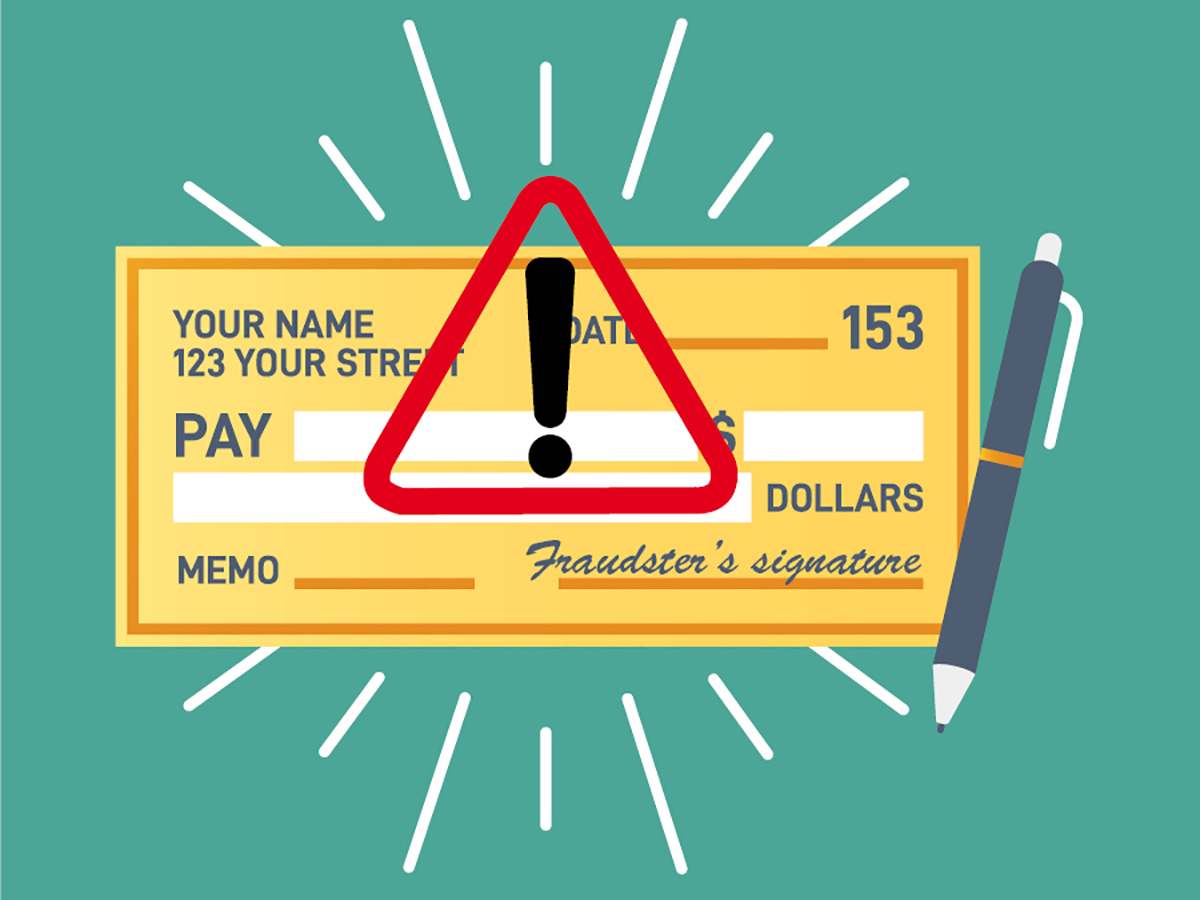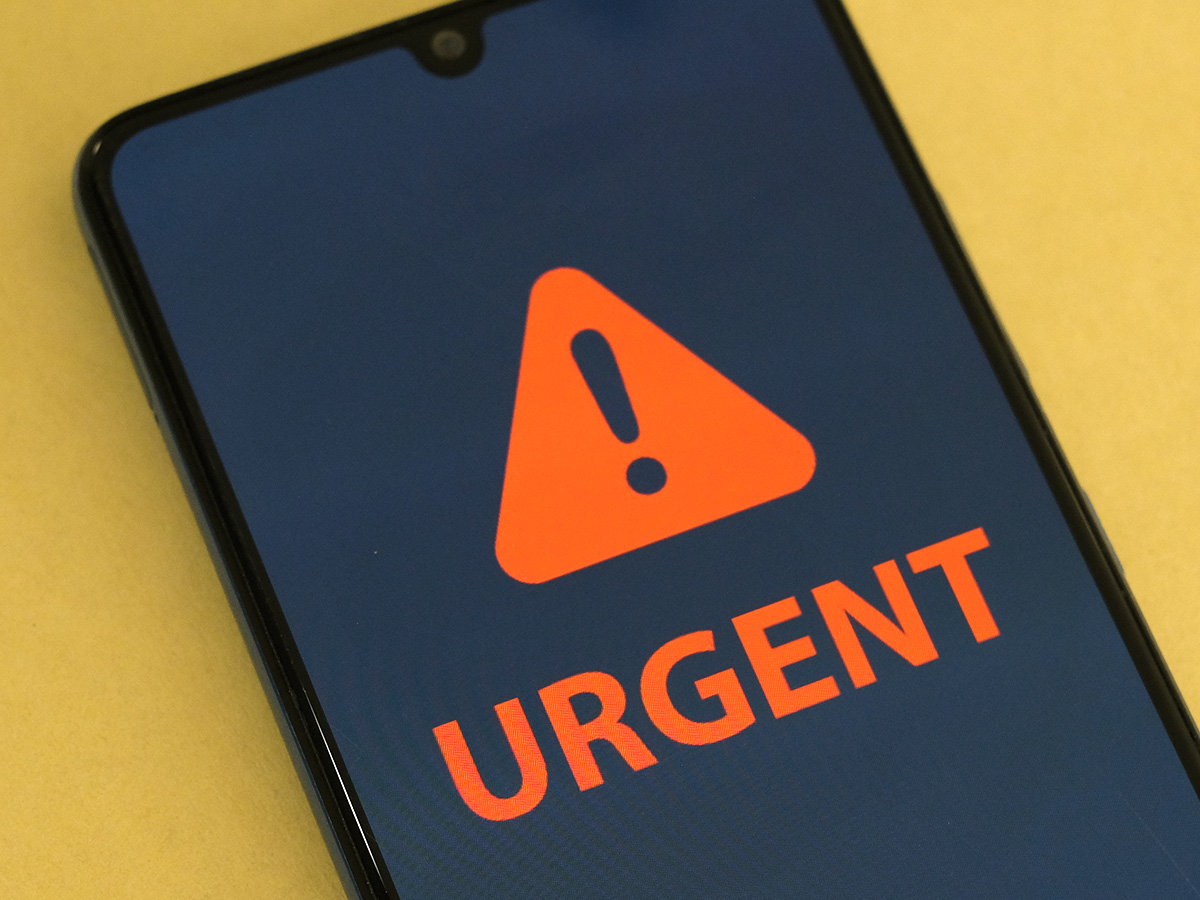 Fraud
FraudMay 17, 2023
How to Fight Check Washing Fraud
How to Fight Check Washing Fraud
A common, low-tech scam has been on the rise. It’s called check washing, and here’s how it works:
Scammers steal a paper check, usually from the mail. Using cheap, over-the-counter chemicals, such as rubbing alcohol or nail polish remover, they ‘wash’ ink from the check. Then they can rewrite the check to their own account and increase the amount by hundreds or even thousands of dollars. As soon as possible, they’ll withdraw their fraudulent deposits or wire the funds to another account.
Even as we’re writing fewer paper checks nationwide, this form of fraud has been increasing at an alarming rate. You can protect yourself from check washing with these tips.
Pay Electronically
Electronic payments are widely considered to be more secure than paper checks. Online payments use state-of-the-art technologies, such as encryption and tokenization, to protect your financial information from being intercepted. In-person payments benefit from the chip and contactless technologies that are now standard on debit and credit cards.
PFFCU Security Features:
Members can access our Bill Pay option through Online/Mobile Banking. While logged in, you can also customize Account Alerts to get a text, call, or email for different types of account activity.
Review Your Transactions
You should check your accounts at least once a week. Confirm that all transactions listed are accurate and legitimate. Besides reviewing what’s there, look for things that might be missing. If you mailed a check that hasn’t been cashed, follow up with the payee to confirm that it was received.
PFFCU Security Features:
Log in to Online/Mobile Banking to quickly and conveniently check all your PFFCU accounts. In the PFFCU Mobile App, click the ⋮ symbol to view images of your cashed checks to confirm that they’re unchanged. If a check is missing, promptly report it to PFFCU.
Choose Indelible Ink
When you must write a paper check, use a black gel pen. The ink in gel pens has been shown to absorb into paper fibers; unlike ink from a ballpoint pen, gel ink resists the common chemicals used in check washing.
Take Precautions with the Mail
If you’re mailing a check, take the envelope inside the Post Office; outdoor mailboxes are more vulnerable targets for thieves. For checks in larger amounts or for priority payments, consider using more secure methods, such as Certified Mail or a private overnight courier.
If mail to your home is left in an outdoor mailbox, retrieve it promptly. If you have outdoor security cameras, include your mailbox in the frame, preferably with an eye-level view.
Avoid Checks for Retail Purchases
Mail isn’t the only risky channel for your checks. When you pay by check at the register, more people will have access to your check before it’s deposited. But your greatest risk comes from a standard requirement that retailers use to protect themselves from fraud.
If you write your driver’s license number on the check, you’re providing information that’s as good as gold to identity thieves. With your information and their own photo, they can create a counterfeit driver’s license to open new credit accounts, cash fraudulent checks, and redirect your mail to a different address.
PFFCU Security Features:
PFFCU Visa credit/debit cards offer more security features than paper checks; they come standard with tap-to-pay technology that generates a unique code for every transaction.
Link your PFFCU debit card to a secure digital wallet, and you can easily pay from your checking account, even as your debit card and checkbook are safely at home.
With PFFCU as your fraud-fighting partner, you have tools to protect yourself and your finances. If you have general questions about security, or concerns about specific account activity, a Member Service Representative will be happy to assist you by phone or at a Branch.

